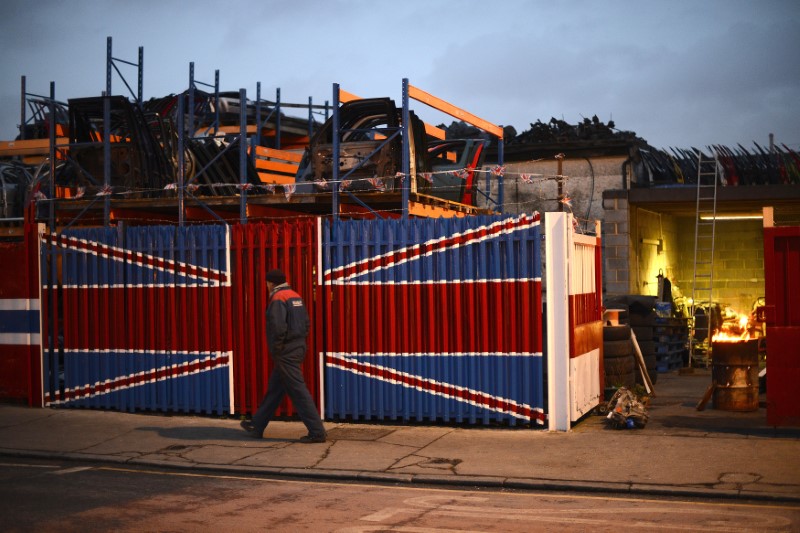LONDON (Reuters) - British industrial output shrank for a third month in a row in March, official data showed on Thursday, underscoring how the impact of last year's Brexit vote has begun to weigh on the economy.
The Office for National Statistics also said Britain's trade deficit widened by more than expected, a further setback for hopes that the fall in the value of the pound since the European Union membership referendum would help rebalance the economy.
Industrial output fell by a monthly 0.5 percent - a sharper decline than expected by economists taking part in a Reuters poll - and output in February was revised lower.
The manufacturing sector, which is part of overall industrial output, saw output fall by 0.6 percent, compared with economists' expectations of no change.
For the first quarter as a whole, industrial output only inched up by 0.1 percent and manufacturing growth slowed to 0.3 percent.
Britain's economy has slowed this year after it initially withstood the shock of the decision by voters to leave the European Union in a referendum in June.
The slowdown and uncertainty about Britain's future relationship with the EU have added to expectations that the Bank of England will keep interest rates at their record low possibly for another two years. The BoE is due to announce its latest thinking on Britain's economy at 1100 GMT on Thursday.
Consumers, who are the main drivers of growth, have reined in their spending as inflation rises quickly, pushed up by the post-Brexit vote fall in the value of the pound.
Some surveys have suggested that manufacturers started the year well, potentially offsetting some of the slowdown in consumer spending. But that optimism has not yet been reflected in official data.
The ONS said Thursday's figures implied no change to its preliminary estimate that Britain's economy grew by 0.3 percent in the first quarter, less than half the pace of growth at the end of 2016.
Despite the weaker start to the year for the economy, British Prime Minister Theresa May is widely expected to win comfortably a national election she has called for June 8.
Separate data from the ONS showed Britain's goods trade deficit with the rest of the world widened to 13.441 billion pounds, bigger than the median forecast of 11.8 billion pounds in the Reuters poll of economists.
That took the total trade deficit - including Britain's surplus in services - for the first quarter to 10.540 billion pounds, more than double the shortfall in the fourth quarter.
Growth in exports of goods, measured in volume terms, slowed to 0.2 percent in the first quarter while import volumes jumped by 3.3 percent.
An ONS official said the widening deficit was fuelled by imports of machinery and cars and by rising oil imports.

The ONS also released figures for construction output in March, which fell 0.7 percent on the month and rose 2.4 percent on the year. The Reuters poll had pointed to growth of 0.3 percent and 2.8 percent respectively.